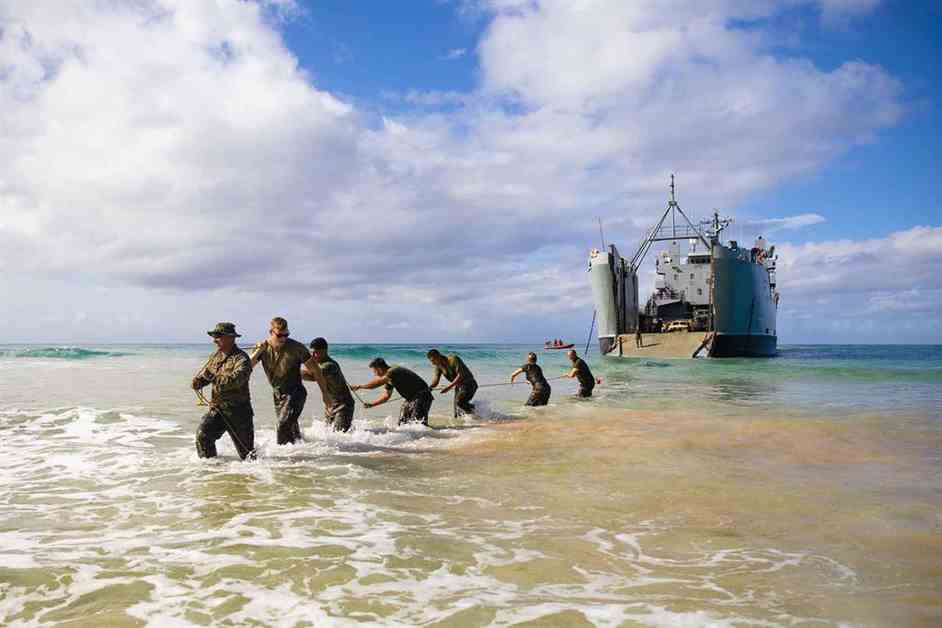Title: Bill Aims to Enhance Logistics Strategy in the Pacific Region
A new bipartisan bill introduced in the Senate is focused on strengthening the relationship between the United States and key countries in the Pacific region. This legislation aims to protect crucial supply lines and ensure sustained operations, especially in the face of a growing threat from China.
Senators Mitt Romney and Mark Kelly co-introduced the bill, highlighting the need to address China’s expanding military capabilities. The Chinese Communist Party’s ambitions pose a significant challenge to the United States and its allies in the Indo-Pacific region.
The proposed legislation emphasizes the importance of partnerships in the Indo-Pacific to bolster readiness and support troops effectively. It calls for increased oversight of the U.S. military’s logistics and sustainment efforts in contested environments, with a focus on building partnerships for maintenance and repair activities.
The bill mandates a comprehensive review of the military services’ roles in maintaining and repairing capabilities in contested logistics environments. It also stresses the importance of reducing risks associated with operations in such environments.
Moreover, the legislation aims to expand the group of allies providing product support in contested logistics scenarios to include Japan and South Korea. Strengthening relationships with these countries is crucial for enhancing operational capabilities and ensuring efficient repairs during conflicts.
The bill also authorizes the Defense Department to conduct maintenance on surface vessels in foreign ports under the Ship Wartime Repair and Maintenance (SWaRM) pilot program. This initiative seeks to streamline the repair process for U.S. Navy ships in foreign ports, ensuring quick and effective maintenance.
In addition to legislative actions, the U.S. military is actively engaging with allies and partners through various exercises and cooperation initiatives. These efforts aim to enhance interoperability, strengthen supply chains, and build a network of support in the Pacific region.
As the U.S. Army and other military branches adapt their logistics strategies to address potential conflicts in the Pacific, collaboration with allies becomes increasingly important. By establishing a robust network of partners, the U.S. military aims to streamline operations, reduce risks, and maintain readiness in contested environments.
Overall, the proposed bill underscores the critical role of logistics in sustaining military operations in the Pacific. Through enhanced partnerships, increased oversight, and proactive planning, the United States seeks to bolster its capabilities and deter aggression in the region effectively.















